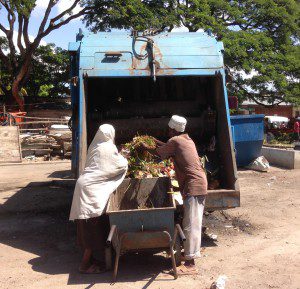In the recent UNDP-publication “An Integrated Framework to support Local Governance and Local Development”, you can read that localising development should not be seen as a translation of global policies within a local context, but rather as a process based on the empowerment of local stakeholders, aimed at making sustainable development more responsive and more relevant to local needs, aspirations and lives through sustained exchanges between the global, national and local levels.
A local and inclusive approach increases also the quality and accessibility of services like education, health care, water and sanitation, and social services. In our training course “Local Service Delivery and the SDGs” you will learn more about how local governments can effectively deliver services to their citizens and how they can plan and finance it. You will discuss questions such as: how can the different layers of government work together to ensure basic services also reach the poorest people? How can they set up the financial management of services in a transparent and democratic way? And how can partnerships with NGOs and the private sector help local governments to better deal with challenges in service delivery?
This course takes place from 3 to 14 October 2016 in the Hague and for more infomation and application see: www.cms.thehagueacademy.com/localservicedelivery

